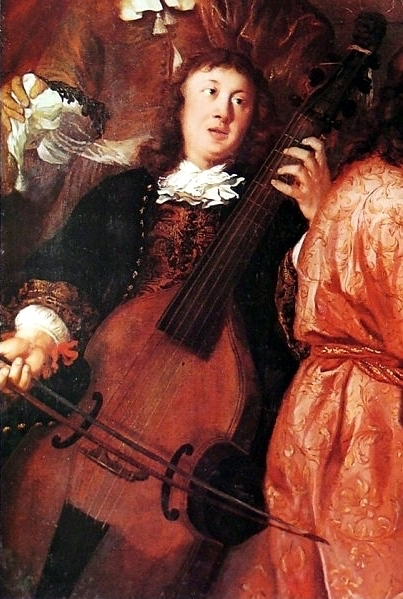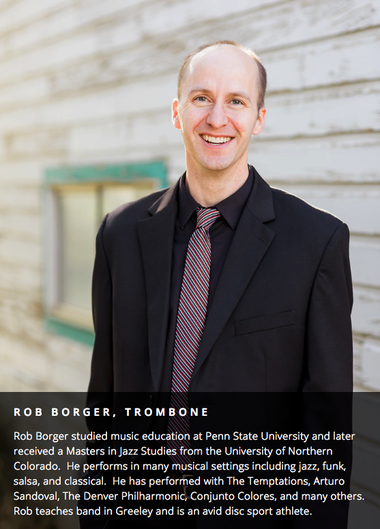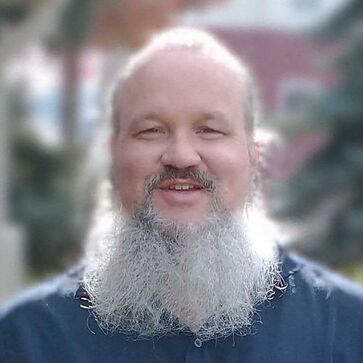 The only surviving portrait of Buxtehude, from "Häusliche Musikszene" by Johannes Voorhout (1674). Source: Wikimedia Commons The only surviving portrait of Buxtehude, from "Häusliche Musikszene" by Johannes Voorhout (1674). Source: Wikimedia Commons Organ works by early Baroque composer Dietrich Buxtehude (1637-1707) will pervade this Sunday's morning services. He spent the majority of his career at Marienkirche (St. Mary's Church) in Lübeck, attaining the post in 1668 and holding it until his death. Retirement was desired but a new music director would have needed to marry Buxtehude's daughter as part of the position requirements, a condition never fulfilled by any would-be job seeker. Buxtehude became very well known in Germany for his organ performance prowess and vocal and instrumental compositions, drawing contemporaries J.S. Bach and G.F. Handel to Lübeck to meet the master. The sectional free work Prelude, Fugue, and Chaconne in C Major will serve as the prelude. It offers a representative glimpse into Buxtehude's compositional style that would influence the entire North German school of organ composition to follow. During the 9:00 a.m. communion, the composer's setting of the 1607 Lutheran chorale Auf meinen lieben Gott ("In my beloved God") will be played. The original text speaks to finding solace and strength in following God. Also a sectional work, the chorale variations are based on traditional dance movements of the time, such as the courante, sarabande, and gigue. Closing the services is the "Jig" Fugue in C Major, also utilizing the triplet dance rhythms of the gigue. At the 11:00 a.m. choral service, the Chancel Choir will sing "O God, You Speak Your Beauty Every Hour" by respected sacred music composer Howard Helvey. Conceived in 2015, the work is written in the idiom of high Anglican church music and speaks to our mission of bringing Light and Love to all corners of the earth. Organist Jake Schick will accompany the choir in this beautiful offering.
0 Comments
 The First Sunday after Pentecost can also be acknowledged as Trinity Sunday. And it is to this traditional feast day on the Roman calendar that Sunday morning’s Baroque era organ selections will honor. A setting of the trinitarian hymn “Allein Gott in der Höh sei Her” (To God Alone on High be Glory) by early Baroque Dutch composer Jan Pieterszoon Sweelinck begins the service. Sweelinck refined Renaissance era composition practices and helped usher in the North German organ school of composers which included Georg Böhm, J.S. Bach, Dietrich Buxtehude, and Samuel Scheidt, the latter two also being heard this Sunday morning. “Wir glauben all’ an einen Gott” (We all believe in one true God) serves as the Offertory this week. There are numerous settings in the organ literature of this Martin Luther hymn, whose text is based on the words of the Nicean Creed. Samuel Scheidt, also a student of Sweelinck, provides the setting this week. Buxtehude’s galloping Fugue in C Major concludes the service. Subtitled the ‘gigue fugue’, the work is in a compound three meter imitating the imported British jig dance. Bach employed many numerological references to the Trinity in his organ works (abundant in the triple fugue of his “St. Anne” E flat major masterpiece). Buxtehude did not presumably intend this ‘gigue’ to be a trinitarian reference, but it will do. Come back later to Plymouth for a jazz-inflected service at 6:00. Vocalist Adrienne Harlow and trombonist Rob Borger and friends will join Bobby for a musically adventurous evening. |
Details
|

 RSS Feed
RSS Feed